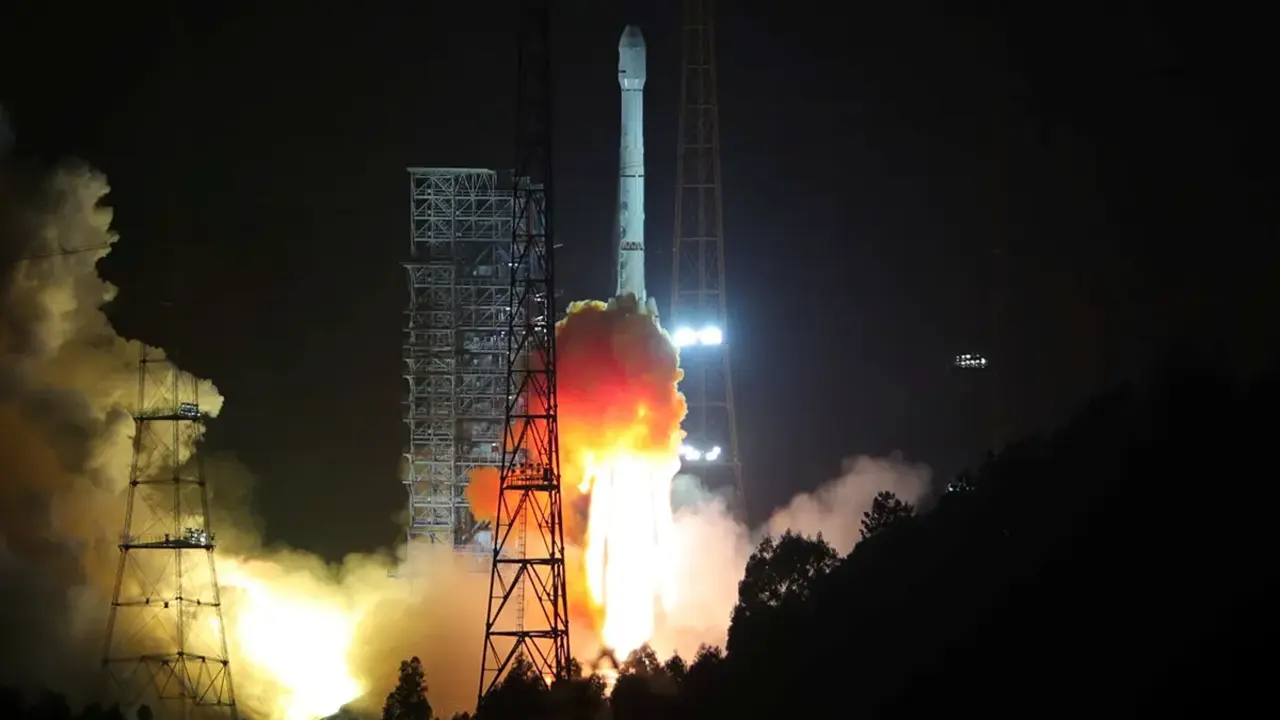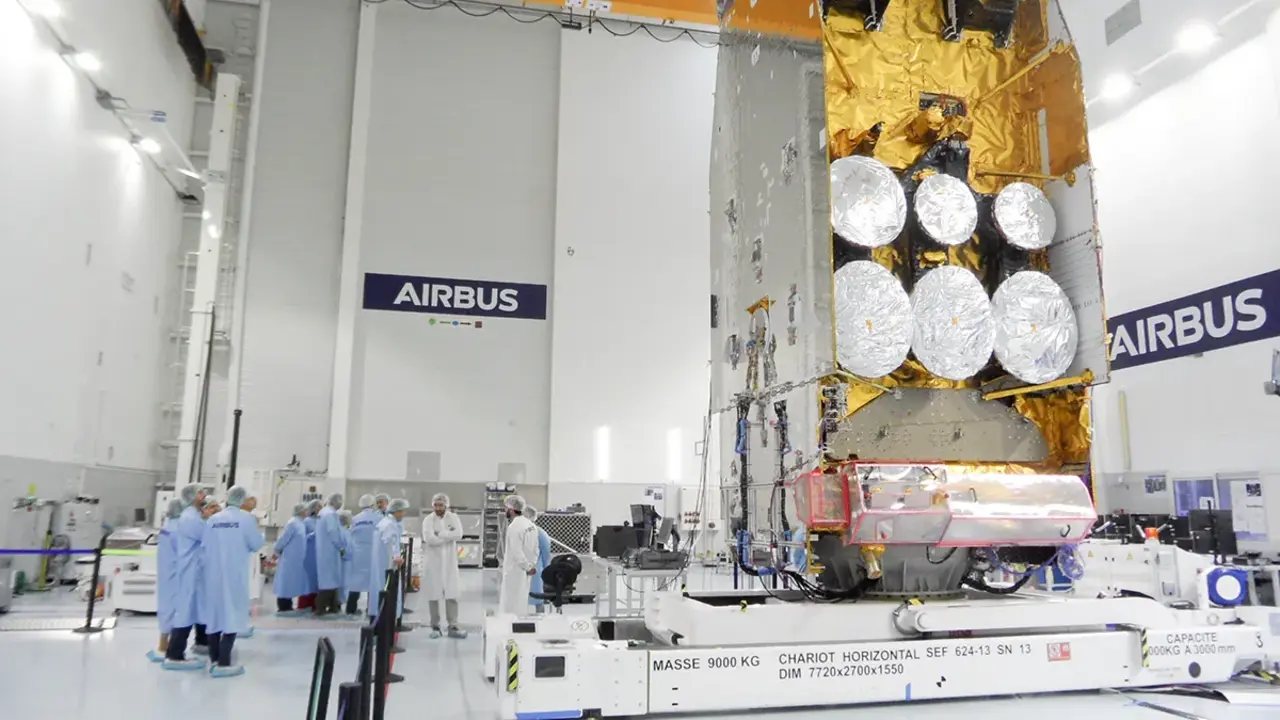Boris Johnson and Richard Branson are to launch satellites from the UK this summer

Liverpool have been beaten by Real Madrid in the final of the Champions League football competition, but the Prime Minister Boris Johnson is on track to deliver on his promise to make the UK a "galactic" nation. The first power to shape a non-state space transportation system capable of positioning satellites in Earth orbit from Western European soil.
Senior government officials in London are finalising the process of authorisations that should allow British entrepreneurs to leapfrog their former EU partners and, this summer, begin positioning the first satellites around the Earth that will take off from the islands.
The maiden flight is due to depart from the Cornwall spaceport, which has been built near the town of Newquay in the far south-west of England. If the British National Space Strategy of September 2021 comes to fruition, Boris Johnson will demonstrate to EU President Ursula von de Leyen the strengths that he has been able to bring to the British space sector in just a few years.

One of the investment policies favoured by the Johnson cabinet and its immediate predecessors has been to encourage the development of technologies to provide national autonomy to access outer space. The UK Space Agency's deputy chief executive, Ian Annett, has made it clear that the UK is moving "to the forefront of launching small satellites, to offer its services to commercial and government customers and to open up new opportunities for British scientists, engineers and entrepreneurs".
Having the freedom of action and the immediate ability to place small objects into orbit from Britain means gaining a clear global advantage. London has positioned itself ahead of Berlin, which has also been aware of market trends for years and has several initiatives underway. By contrast, other European capitals have lacked a space policy for decades and remain mired in official inaction.

The transport vector that will usher in Britain's galactic era will not start with a shot from a conventional liftoff ramp, with the rocket in a vertical position. It will start with a proven system that combines aeronautics and space. This is the two-stage LauncherOne launcher - weighing 25.8 tonnes - which will be released from the underside of an aircraft christened Cosmic Girl, a Boeing 747-400 Jumbo belonging to British billionaire Richard Branson's Virgin Orbit company.
Cosmic Girl is expected to take off at the end of August, "once we have the licence to be granted by the CCA, the British Civil Aviation Authority," says Virgin Orbit's director of strategy, Jim Simpson. Science minister George Freeman is more cautious, suggesting that the first satellite launches from UK spaceports will take place "by the end of the summer".
But before then, by the end of June, a LauncherOne is due to complete a major mission over California's Mojave Desert and place seven small, secret Pentagon platforms into orbit. In case something goes wrong, the take-off from Cornwall airport could be delayed until the causes are found out.

If the flight in California is successful, Cosmic Girl will take off in the summer, for the first time from the UK. Once at 30,000 feet, it will release LauncherOne, which will begin its ascent flight to place two small demonstrator satellites named Prometheus-2 into a 550-kilometre orbit. A joint project of the UK Ministry of Defence and the US National Reconnaissance Office, the two satellites are to remain between 50 and 100 kilometres apart.
Manufactured to the CubeSat standard by UK company In-Space Missions Ltd, each Prometheus-2 is the size of a shoebox. Both house laser equipment and GPS receivers, but one houses a hyperspectral camera and the other two optical cameras. According to the director of defence space affairs, Air Vice-Marshal Harvey Smyth, the secretive mission is of "immense value to our military space programme".

But there is more. The UK authorities have made it easier for entrepreneurs to deploy the necessary infrastructure in sparsely populated areas of their islands to provide launch services to the large companies, public and private institutions and start-ups involved in New Space, which have entered the nano, micro and small satellite business, which looks set to be a juicy business in economic terms.
There are a total of seven spaceports in various stages of development, so in the short and medium term there are many satellite launches in sight from island territory. The second most advanced project is that of Orbex -part-owned by Spain's Elecnor Deimos-, a company that wants to make the maiden flight of its Prime reusable orbital launcher at the end of this year or early 2023. It will launch vertically from the small Sutherland Space Centre, which is in the final stages of construction on the northern tip of the Scottish coast.

The technological contribution of Elecnor Deimos, headed by Ismael López, is made through its subsidiaries in the United Kingdom and Portugal. Deimos Space UK is responsible for the launcher's guidance, navigation and flight control (GNC) subsystem during its ascent phase in the atmosphere, autonomous failure management, test benches and post-flight analysis. Deimos Engenharia, the Portuguese company headed by Nuno Ávila, is responsible for the development of the GNC in its orbital phase, once the rocket has passed the Earth's atmosphere.
With the first full-scale prototype already integrated and undergoing tests at the Kinloss test site in Scotland, the two-stage Prime launcher has been developed to place objects weighing up to 150 kilos at an altitude of 500 kilometres. Measuring 19 metres in length and weighing 18 tonnes, it was designed with sustainability in mind so as not to leave debris in orbit around the Earth, incorporating a recovery system and a rigorous reuse process.

Prime's manufacturing has made extensive use of additive manufacturing. The rocket engines are made entirely from 3D printing technology and the fuel used is biopropane, "which reduces CO2 emissions by 90%," notes Chris Larmour, CEO of Orbex, which differentiates it from the fossil-fuelled engines that power most commercial rockets. In short, London is on the verge of creating a national space ecosystem that some EU countries are still a long way from and others have not even considered.









